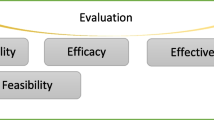Abstract
Recent research demonstrated the benefits of employing robots as therapeutic assistants and caregivers, but very little is known on the use of robots as a tool for psychological assessment. Socially capable robots can provide many advantages to diagnostic practice: engage people, guarantee standardized administration and assessor neutrality, perform automatic recording of subject behaviors for further analysis by practitioners. In this paper, we present a pilot study on testing people’s cognitive functioning via social interaction with a humanoid robot. To this end, we programmed a social robot to administer a psychometric tool for detecting Mild Cognitive Impairment, a risk factor for dementia, implementing the first prototype of robotic assistant for mass screening of elderly population. Finally, we present a pilot test of the robotic procedure with healthy adults that show promising results of the robotic test, also compared to its traditional paper version.
Access this chapter
Tax calculation will be finalised at checkout
Purchases are for personal use only
Similar content being viewed by others
References
Conti, D., Di Nuovo, S., Trubia, G., Buono, S., Di Nuovo, A.: Use of robotics to stimulate imitation in children with autism spectrum disorder: a pilot study in a clinical setting. In: Proceedings of the 24th IEEE International Symposium on Robot and Human Interactive Communication, ROMAN, pp. 1–6 (2015)
Conti, D., Di Nuovo, S., Buono, S., Di Nuovo, A.: Robots in education and care of children with developmental disabilities: a study on acceptance by experienced and future professionals. Int. J. Soc. Robot. 9, 51–62 (2017)
Rabbitt, S.M., Kazdin, A.E., Scassellati, B.: Integrating socially assistive robotics into mental healthcare interventions: applications and recommendations for expanded use. Clin. Psychol. Rev. 35, 35–46 (2015)
Conti, D., Cattani, A., Di Nuovo, S., Di Nuovo, A.: A cross-cultural study of acceptance and use of robotics by future psychology practitioners. In: Proceedings of the 24th IEEE International Symposium on Robot and Human Interactive Communication, ROMAN, pp. 555–560 (2015)
Iroju, O., Ojerinde, O., Ikono, R.: State of the art: a study of human-robot interaction in healthcare. Int. J. Inf. Eng. Electron. Bus. 9–3, 43–55 (2017)
Feil-Seifer, D., Matarić, M.J.: Defining socially assistive robotics. In: Proceedings of the 2005 IEEE 9th International Conference on Rehabilitation Robotics, pp. 465–468 (2005)
Di Nuovo, A., Broz, F., Cavallo, F., Dario, P.: New frontiers of service robotics for active and healthy ageing. Int. J. Soc. Robot. 8, 353–354 (2016)
Di Nuovo, A., Broz, F., Wang, N., Belpaeme, T., Cangelosi, A., Jones, R., Esposito, R., Cavallo, F., Dario, P.: The multi-modal interface of robot-era multi-robot services tailored for the elderly. Intell. Serv., Robot (2018)
Matarić, M.J., Scassellati, B.: Socially Assistive Robotics. In: Siciliano, B., Khatib, O. (eds.) Springer Handbook of Robotics, pp. 1973–1994. Springer International Publishing, Cham (2016)
Conti, D., Di Nuovo, S., Cangelosi, A., Di Nuovo, A.: Lateral specialization in unilateral spatial neglect: a cognitive robotics model. Cogn. Process. 17, 321–328 (2016)
Scassellati, B.: How social robots will help us to diagnose, treat, and understand autism. In: Robotics Research, pp. 552–563 (2007)
Scassellati, B., Admoni, H., Matarić, M.: Robots for use in autism research. Annu. Rev. Biomed. Eng. 14, 275–294 (2012)
Petric, F.: Robotic Autism Spectrum Disorder Diagnostic Protocol: Basis for Cognitive and Interactive Robotic Systems
Petric, F., Miklic, D., Kovacic, Z.: Robot-assisted autism spectrum disorder diagnostics using POMDPs. In: Proceedings of the Companion 2017 ACM/IEEE International Conference Human-Robot Interaction—HRI ’17, pp. 369–370 (2017)
Wijayasinghe, I.B., Ranatunga, I., Balakrishnan, N., Bugnariu, N., Popa, D.O.: Human-robot gesture analysis for objective assessment of autism spectrum disorder. Int. J. Soc. Robot. 8, 695–707 (2016)
Kojima, H., Takaeda, K., Nihel, M., Sadohara, K., Ohnaka, S., Inoue, T.: Acquisition and evaluation of a human-robot elderly spoken dialog corpus for develo** computerized cognitive assessment systems. J. Acoust. Soc. Am. 140, 2963–2963 (2016)
Petersen, R.C.: Mild cognitive impairment as a diagnostic entity. J. Intern. Med., 183–194 (2004)
Luis, C., Loewenstein, D., Acevedo, A., Barker, W.W., Duara, R.: Mild cognitive impairment: directions for future research. Neurology 61, 438–444 (2003)
Landau, S.M., Harvey, D., Madison, C.M., Reiman, E.M., Foster, N.L., Aisen, P.S., Petersen, R.C., Shaw, L.M., Trojanowski, J.Q., Jack, C.R., Weiner, M.W., Jagust, W.J.: Comparing predictors of conversion and decline in mild cognitive impairment. Neurology 75, 230–238 (2010)
Caraci, F., Castellano, S., Salomone, S., Drago, F., Bosco, P., Di Nuovo, S.: Searching for disease-modifying drugs in AD: can we combine neuropsychological tools with biological markers? CNS Neurol. Disord. Drug Targets 13, 173–186 (2014)
Nasreddine, Z.S., Phillips, N.A., Bédirian, V., Charbonneau, S., Whitehead, V., Collin, I., Cummings, J.L., Chertkow, H.: The Montreal cognitive assessment, MoCA: a brief screening tool for mild cognitive impairment. J. Am. Geriatr. Soc. 53, 695–699 (2005)
Chertkow, H., Nasreddine, Z.S., Johns, E., Phillips, N.A., McHenry, C.: The Montreal cognitive assessment (MoCA): validation of alternate forms and new recommendations for education corrections. Alzheimer’s Dement. 7, S157 (2011)
Xu, T. (Linger), Zhang, H., Yu, C.: See you see me: the role of eye contact in multimodal human-robot interaction. ACM Trans. Interact. Intell. Syst. 6, 1–22 (2016)
Sciutti, A., Rea, F., Sandini, G.: When you are young, (robot’s) looks matter. Developmental changes in the desired properties of a robot friend. In: IEEE RO-MAN 2014—23rd IEEE International Symposium on Robot and Human Interactive Communication: Human-Robot Co-Existence: Adaptive Interfaces and Systems for Daily Life, Therapy, Assistance and Socially Engaging Interactions, pp. 567–573 (2014)
Cohen, J.: Statistical power analysis for the behavioral sciences. Erlbaum, Hillsdale (1988)
Acknowledgements
The authors gratefully thank all university staff and students who participated in this study. The work was supported by the European Union’s H2020 research and innovation program under the MSCA-Individual Fellowship grant agreement no. 703489.
Author information
Authors and Affiliations
Corresponding author
Editor information
Editors and Affiliations
Rights and permissions
Copyright information
© 2019 Springer International Publishing AG, part of Springer Nature
About this paper
Cite this paper
Varrasi, S., Di Nuovo, S., Conti, D., Di Nuovo, A. (2019). Social Robots as Psychometric Tools for Cognitive Assessment: A Pilot Test. In: Ficuciello, F., Ruggiero, F., Finzi, A. (eds) Human Friendly Robotics. Springer Proceedings in Advanced Robotics, vol 7. Springer, Cham. https://doi.org/10.1007/978-3-319-89327-3_8
Download citation
DOI: https://doi.org/10.1007/978-3-319-89327-3_8
Published:
Publisher Name: Springer, Cham
Print ISBN: 978-3-319-89326-6
Online ISBN: 978-3-319-89327-3
eBook Packages: Intelligent Technologies and RoboticsIntelligent Technologies and Robotics (R0)




